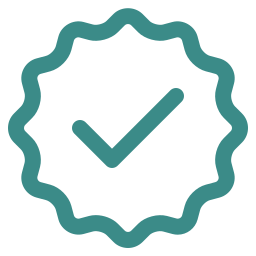Harmony Within: Embracing Tranquility with Pilates for Stress Relief and Gentle Exercise
Did you know that stress is a leading cause of many health problems, including heart disease and depression?
In fact, according to the American Institute of Stress, 77% of people regularly experience physical symptoms caused by stress.
If you're one of those individuals looking for a way to find relief from the daily pressures and anxieties, then look no further than Pilates.
This gentle exercise not only strengthens your core muscles and improves flexibility but also promotes a deep mind-body connection that can help calm your mind and relieve stress.
Pilates on a Pilates machine is a holistic approach to fitness that focuses on controlled movements and precise breathing techniques.
By engaging the body and mind simultaneously, it helps create a sense of balance and harmony within ourselves.
Through its principles of centering, concentration, control, precision, breath, and flow, Pilates allows us to release tension in our muscles while promoting relaxation.
When we practice Pilates regularly, we strengthen our core muscles which provide stability for our entire body.
This improved strength not only gives us better posture but also supports our spine and reduces the risk of injuries.
Additionally, Pilates increases flexibility by elongating our muscles through controlled stretching exercises.
As we become more flexible in both body and mind during these exercises, we develop an increased range of motion which allows us to move with greater ease throughout our day.
As human beings with complex emotions and thoughts constantly running through our minds, it's crucial to find ways to calm the chaos within ourselves.
Pilates offers an opportunity for just that by encouraging mindfulness in every movement we make.
By focusing on each breath taken during exercises or being aware of how different parts of our bodies feel as they move through space, we cultivate a deeper connection between our minds and bodies.
This mindful awareness can help reduce anxiety levels as well as improve overall mental well-being.
So if you're ready to embark on a journey towards finding inner peace amidst life's stresses or simply want to add a new dimension to your exercise routine, give Pilates a try.
It's not only an effective way to strengthen and tone your body but also a powerful tool for calming the mind and promoting overall well-being.
Together, let's discover the transformative power of Pilates for stress relief.
Understanding the Principles of Pilates
Understanding the principles of Pilates is crucial for effectively calming both the mind and body.
When practicing Pilates for stress relief, it's important to have a solid understanding of the foundational principles that guide this gentle exercise.
These principles not only help in achieving physical benefits but also contribute to a sense of mental calmness and relaxation.
One key principle of Pilates for stress relief is breath control.
By focusing on deep, slow breathing throughout each movement, you can activate your parasympathetic nervous system, which helps promote a state of relaxation.
This conscious focus on breath allows you to connect with your body and let go of any tension or stress that may be present.
Another principle is precision in movement.
Each Pilates exercise you do on Pilates equipment for sale emphasizes proper alignment and controlled movements, which can help create a sense of mindfulness and presence at the moment.
By paying attention to how your body moves and feels during each exercise, you become more attuned to any areas of tension or discomfort, allowing you to release them and find greater ease.
Core engagement is also an essential principle in Pilates for stress relief.
Strengthening your core muscles not only improves posture and stability but also enhances body awareness and control.
A strong core provides a stable foundation for movement, helping to alleviate physical strain and allow for more fluid, effortless motions.
Concentration plays a vital role in Pilates practice for calming the mind and body.
By focusing fully on each movement and maintaining mindful awareness throughout the session, you cultivate a sense of mental clarity and tranquility.
Concentration helps quiet racing thoughts or worries by redirecting attention towards bodily sensations and the present moment.
Understanding these principles sets the stage for effective stress relief through Pilates practice.
By incorporating breath control, precision in movement, core engagement, and concentration into your workouts, you can experience not only physical benefits but also mental peace and serenity.
So take some time out of your day to engage in this gentle exercise, and let Pilates be a tool for calming your mind and body.
Strengthening Your Core Muscles
Improve your posture and stability by engaging your core muscles during these gentle movements.
When you practice Pilates, you focus on strengthening the deep muscles in your abdomen, back, and pelvis.
These muscles make up your core, which acts as a stabilizer for your entire body.
By actively engaging your core during each exercise, you not only improve your balance and alignment but also enhance the overall functionality of your body.
During a Pilates session, you can expect to perform exercises that target different aspects of core strength.
One example is the 'Hundred' exercise, where you lie on your back with your legs raised and arms pumping by your sides.
This movement engages both the abdominal and lower back muscles, helping to build strength and stability in those areas.
Another effective exercise is the 'Plank,' which involves holding yourself in a push-up position while keeping a straight line from head to toe.
This challenging pose activates multiple core muscles simultaneously.
Engaging your core through Pilates has numerous benefits beyond just physical strength.
It can also help alleviate anxiety and stress by promoting a mind-body connection.
The mindful nature of Pilates encourages focused breathing and concentration on each movement, allowing you to release tension and find inner calmness.
Unlike yoga, which often incorporates meditation and spiritual elements, Pilates focuses more on physical conditioning while still providing mental relaxation.
Incorporating regular Pilates sessions on Elina Reformer with Tower into your routine can have a transformative effect on both body and mind.
Not only will it improve posture and stability through strengthened core muscles, but it will also aid in reducing anxiety and stress levels.
So why not give it a try?
Joining a local class or following online tutorials can be an excellent way to start reaping the many benefits of Pilates for both physical fitness and overall well-being.
Whether you're a beginner or experienced, Pilates offers a variety of exercises that can be tailored to your fitness level, making it accessible to everyone.
So why wait?
Start incorporating Pilates into your routine today and experience the positive impact it can have on your mind and body.
Improving Flexibility and Range of Motion
Incorporating regular Pilates sessions into our routine can lead to a greater range of motion and increased flexibility in our muscles.
When we engage in Pilates exercises on Merrithew at home SPX reformer bundle, such as stretching and gentle movements, we're actively working on improving our flexibility.
This is beneficial for relieving stress because it allows us to release tension and tightness in our bodies.
By practicing Pilates regularly, we can gradually increase our range of motion.
This means we'll be able to move more freely and with ease in our daily activities.
Whether it's reaching for something on a high shelf or bending down to tie our shoes, having improved flexibility can make these tasks feel effortless.
It also reduces the risk of injury by ensuring that our muscles are supple and less prone to strain.
Pilates specifically targets the core muscles, which play a crucial role in supporting the spine and maintaining good posture.
As we strengthen these muscles through Pilates exercises, we also improve our overall flexibility.
This is because a strong core allows for better alignment of the spine and pelvis, which in turn improves the mobility of other parts of the body.
Furthermore, when we engage in Pilates exercises that focus on stretching and lengthening the muscles, we stimulate blood flow throughout the body.
This increased circulation helps nourish the tissues and promote relaxation.
As a result, not only do we experience physical benefits such as improved flexibility, but we also experience mental benefits such as reduced stress levels.
Incorporating regular Pilates sessions into our routine can greatly improve both our flexibility and range of motion.
By targeting specific muscle groups through gentle exercises, we can release tension and tightness while simultaneously strengthening our core.
The combination of increased blood flow and relaxation further enhances its stress-relieving properties.
So why not give it a try?
Joining a Pilates class or following along with online tutorials could be just what you need to calm your mind and body while improving your physical well-being.
Promoting Mind-Body Connection
By fostering a strong connection between our thoughts and physical sensations, we can truly harness the power of our own bodies.
In the realm of Pilates, promoting this mind-body connection is at the core of its practice.
Pilates exercises focus on controlled movements that require concentration and mindfulness.
As we perform each movement with intention, we become more aware of how our bodies feel and respond.
This heightened awareness allows us to better understand ourselves, both physically and mentally.
The mind-body connection in Pilates is not just a philosophical concept; it has been scientifically proven to have numerous benefits.
Research shows that by engaging in activities that promote this connection, such as Pilates, we can reduce stress levels and improve overall well-being.
When we are fully present in our bodies during a Pilates session, our minds are less likely to wander off into worries or anxieties.
Instead, we are able to focus on the present moment and let go of any unnecessary mental clutter.
Furthermore, cultivating a strong mind-body connection through Pilates can improve body awareness and posture.
As we pay close attention to how each movement feels in our body, we develop a greater sense of proprioception - the ability to perceive where our body is in space.
This increased awareness helps us make small adjustments throughout the day to maintain proper alignment and prevent injuries.
Lastly, practicing Pilates on Align H1 Reformer for its mind-body benefits creates a sense of belonging within a community of like-minded individuals who share similar goals for self-improvement.
The group dynamic inherent in many Pilates classes fosters camaraderie and support among participants.
We feel connected not only to ourselves but also to those around us who are on their own journey towards wellness.
Promoting the mind-body connection is an essential aspect of Pilates practice for stress relief and overall well-being.
By being fully present in each movement, we can reduce stress levels, and improve body awareness and posture while fostering a sense of belonging in a community of individuals striving for self-improvement.
So, let's embrace the power of our own bodies and experience the transformative effects that Pilates can have on our lives.
Releasing Tension and Relaxing Muscles
Letting go of tension and relaxing our muscles is key to fully embracing the transformative effects of Pilates.
When we're stressed or anxious, our muscles tend to tighten up, leading to discomfort and restricted movement.
Practicing Pilates on Align Pilates C2 Pro offers a gentle yet effective way to release this tension and promote deep relaxation.
By practicing controlled movements and focusing on breathing, we can target specific muscle groups and encourage them to let go of any built-up stress.
One of the ways Pilates helps us relax our muscles is through stretching exercises.
These movements elongate the muscles, increasing blood flow and promoting flexibility.
The stretches in Pilates are designed to be gradual and gentle, allowing us to ease into each position without causing strain or pain.
As we hold these stretches, we may feel a gentle pull or stretch sensation, but it shouldn't be uncomfortable.
This gradual approach helps us release muscle tension while also improving our range of motion.
In addition to stretching, Pilates incorporates various exercises that target specific muscle groups known for holding tension.
For example, the 'leg circles' exercise focuses on releasing tension in the hip flexors and thigh muscles.
By performing slow and controlled circles with our legs while engaging core stability, we can effectively relax these often overworked areas.
Similarly, exercises like 'spine twists' help release tension in the back by mobilizing the spine gently.
By actively participating in Pilates sessions focused on releasing tension and relaxing muscles, we create an opportunity for both physical and mental relaxation.
When our bodies feel more relaxed, it sends signals to our brain that everything's okay, triggering a sense of calmness throughout our entire being.
In turn, this state of relaxation allows us to better focus on connecting our mind with our body during each movement.
Through targeted stretches and exercises aimed at releasing tension in specific muscle groups combined with a focus on breath control and mindfulness, Pilates provides an effective method for achieving deep muscular relaxation.
By incorporating these practices into our regular routine, we can experience the transformative effects of this gentle exercise on both our bodies and minds.
Let's embrace the power of Pilates to let go of tension and find a sense of belonging within ourselves.
Practicing Deep Breathing Techniques
Practicing deep breathing techniques allows us to fully engage with the transformative effects of Pilates and find a peaceful rhythm within ourselves.
When we take slow, deep breaths during our Pilates practice, we activate our parasympathetic nervous system, which promotes relaxation and reduces stress.
This intentional focus on our breath not only helps to calm the mind but also improves our overall body awareness.
Deep breathing is an essential component of Pilates because it encourages proper oxygenation of the muscles.
As we inhale deeply, oxygen-rich blood flows into our muscles, providing them with the necessary nutrients for optimal function.
This increased oxygen supply also aids in releasing tension from our muscles, allowing us to achieve deeper stretches and more fluid movements during our Pilates routine on Peak Pilates Fit Reformer.
Moreover, practicing deep breathing techniques enhances mental clarity and concentration.
By directing our attention towards the breath, we're able to let go of distracting thoughts and bring ourselves into the present moment.
This heightened mindfulness cultivates a sense of focus and tranquility that carries over into other aspects of our lives outside of the Pilates studio.
In addition to its physical benefits, deep breathing fosters a sense of community and belonging among those who practice Pilates together.
When we synchronize our breathing with others in a class setting, there's an unspoken connection that forms among participants.
We become part of a collective energy that supports each other's journey towards relaxation and self-discovery.
This shared experience creates an atmosphere where everyone feels accepted and valued for their unique contributions.
Incorporating deep breathing techniques into our Pilates practice allows us to tap into the full potential for stress relief and personal growth.
It enables us to release tension from both our minds and bodies while fostering a sense of belonging within a supportive community.
So let's take a moment now to close our eyes, take a long inhale through the nose, exhale slowly through pursed lips...and feel ourselves becoming more grounded and centered with each breath.
Incorporating Mindfulness into Your Pilates Practice
Incorporating mindfulness into your Pilates practice is like adding a dash of tranquility to your workout routine.
It not only enhances the physical benefits of Pilates, but also helps to calm the mind and bring a sense of peace and balance to your overall well-being.
Here are ways you can practise mindfulness with Pilates:
- Focus on the Present Moment
Mindfulness involves paying attention to the present moment without judgment.
During your Pilates practice, try to bring your awareness fully into each movement, noticing how your body feels and any sensations that arise.
This can help you let go of worries or stress from outside distractions and allow yourself to fully connect with the present moment.
- Deepen Your Breath
Breathing deeply is an essential part of both mindfulness and Pilates.
By consciously focusing on your breath during each movement, you can enhance both relaxation and concentration.
Take slow, deep breaths in through your nose and exhale fully through your mouth, allowing tension to release with each breath out.
- Cultivate Gratitude
Practicing gratitude is a powerful way to shift your mindset towards positivity and foster a sense of belonging within yourself.
As you move through each exercise in your Pilates routine, take a moment to acknowledge what you're grateful for in that particular moment - whether it's feeling strong, having the opportunity to move your body, or simply being able to dedicate time for self-care.
By incorporating mindfulness into our Pilates practice on BASI Systems Reformer, we not only strengthen our bodies but also nourish our minds and spirits.
It allows us to cultivate a deep connection between our physical movements and inner thoughts, creating a harmonious flow throughout our entire being.
So next time you step onto the mat for Pilates, remember to bring along that dash of tranquility by practicing mindfulness - it'll truly transform both your workout routine and overall well-being!
Frequently Asked Questions
Are there any age restrictions or limitations for practicing Pilates for stress relief?
Yes, there are age restrictions and limitations for practicing Pilates for stress relief.
While Pilates is generally safe and beneficial for people of all ages, it is important to consider individual circumstances and consult with a healthcare professional before starting any new exercise program.
Older adults or those with certain health conditions may need modifications or guidance from a qualified instructor to ensure safety and effectiveness.
Additionally, children should be supervised by trained professionals when participating in Pilates classes.
It's always best to listen to your body, start at an appropriate level, and progress gradually to prevent injury and maximize the calming benefits of Pilates for stress relief.
Can Pilates be effective in reducing stress and anxiety for individuals with physical limitations or injuries?
Pilates can indeed be effective in reducing stress and anxiety for individuals with physical limitations or injuries.
While it's important to consult with a healthcare professional before beginning any exercise program, Pilates offers a gentle and low-impact form of exercise that can be tailored to accommodate various physical needs.
The focus on controlled movements and proper alignment helps to build strength, flexibility, and balance while minimizing the risk of further injury or strain.
Additionally, Pilates incorporates deep breathing techniques that can help calm the mind and promote relaxation.
By engaging both the mind and body in a safe and supportive environment, Pilates provides an opportunity for individuals with physical limitations or injuries to experience the stress-relieving benefits of exercise.
How often should I practice Pilates in order to experience the stress-relieving benefits?
In order to experience the stress-relieving benefits of Pilates, it's recommended that we practice it regularly.
The frequency of our Pilates sessions will vary depending on our individual needs and schedules, but ideally, we should aim for at least two to three times a week.
Consistency is key when it comes to reaping the rewards of this gentle exercise.
By incorporating Pilates into our routine on a regular basis, we can not only improve our physical fitness but also calm our minds and reduce stress levels.
So let's make sure to carve out some dedicated time for Pilates in our weekly schedule and reap the benefits of this effective stress-relief practice.
Can Pilates help with managing chronic stress or is it more beneficial for acute stress relief?
Pilates is not just for acute stress relief; it can also be highly beneficial in managing chronic stress. This gentle form of exercise helps to calm the mind and body, promoting relaxation and reducing anxiety levels.
Through its focus on controlled movements and breathing techniques, Pilates helps to activate the parasympathetic nervous system, which is responsible for our rest-and-digest response.
Regular practice of Pilates has been shown to lower cortisol levels, a hormone associated with stress, while increasing endorphin production, which promotes feelings of happiness and well-being.
Additionally, Pilates improves flexibility and posture, both of which can be negatively affected by chronic stress.
So whether you're looking for immediate stress relief or long-term management strategies, incorporating Pilates into your routine can greatly benefit your overall well-being.
Is it necessary to have prior experience or a certain level of fitness to practice Pilates for stress relief?
No, it's not necessary to have prior experience or a certain level of fitness in order to practice Pilates for stress relief.
Pilates is a gentle form of exercise that focuses on controlled movements and proper breathing techniques.
This makes it accessible to people of all fitness levels.
In fact, Pilates can be particularly beneficial for those who are new to exercise or have physical limitations, as it's low-impact and can be modified to suit individual needs.
Additionally, the mind-body connection that's emphasized in Pilates can help reduce stress and promote relaxation.
So whether you're a beginner or an experienced exerciser, Pilates can be an effective tool for managing stress and improving overall well-being.
Conclusion
In conclusion, incorporating Pilates into your daily routine can be a powerful tool for stress relief and overall well-being.
By understanding the principles of Pilates and focusing on strengthening your core muscles, improving flexibility and range of motion, promoting mind-body connection, releasing tension and relaxing muscles, practicing deep breathing techniques, and incorporating mindfulness into your practice, you can experience a sense of calmness in both your mind and body.
One interesting statistic that highlights the effectiveness of Pilates for stress relief is that a study conducted by researchers at the University of California found that participants who engaged in regular Pilates sessions experienced a significant reduction in stress levels compared to those who did not participate in any form of exercise.
This finding suggests that engaging in Pilates can be an effective strategy for managing stress and improving overall mental well-being.
By consistently practicing Pilates, you can create a space for yourself to unwind, recharge, and find inner peace amidst the chaos of everyday life.
So why not give it a try?
Take some time each day to engage in gentle exercise through Pilates and experience the transformative power it can have on both your mind and body.
Remember, self-care is essential for maintaining balance and harmony within ourselves, so prioritize yourself today by incorporating Pilates into your wellness routine.




